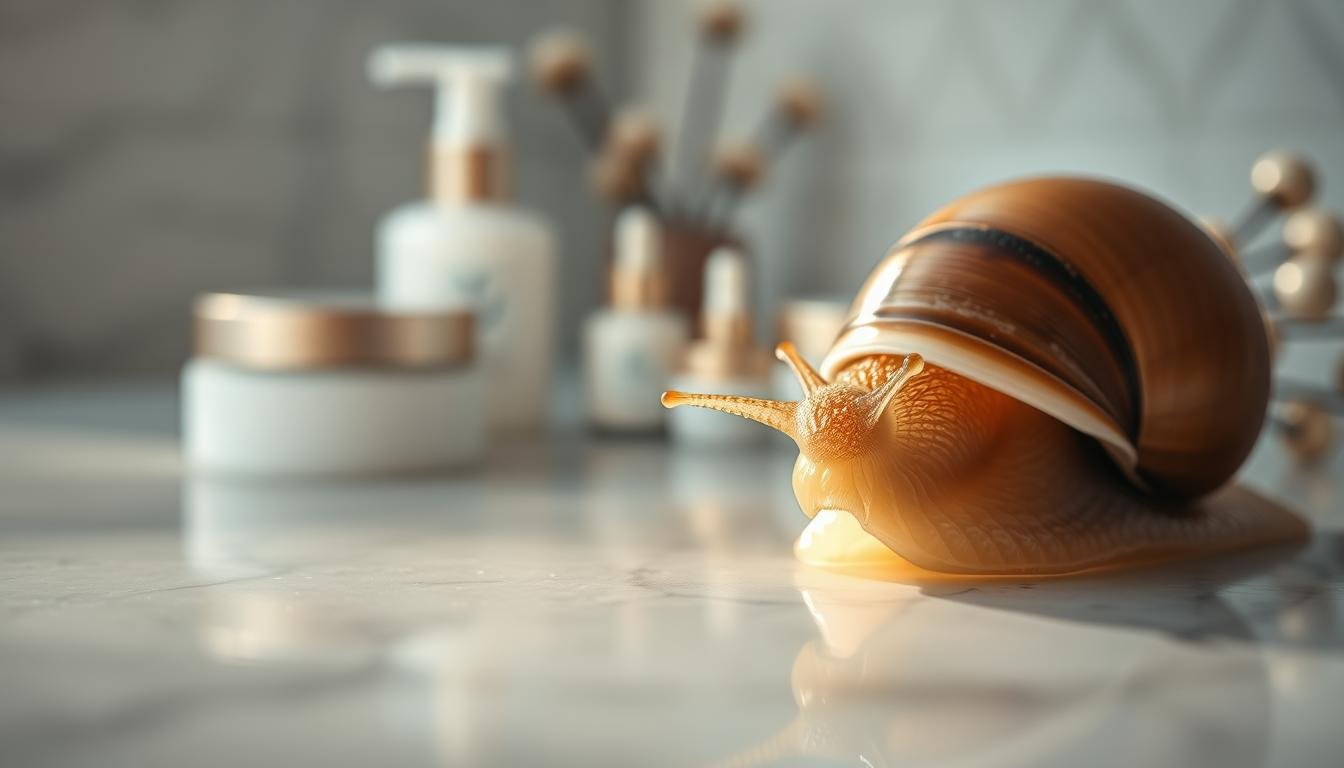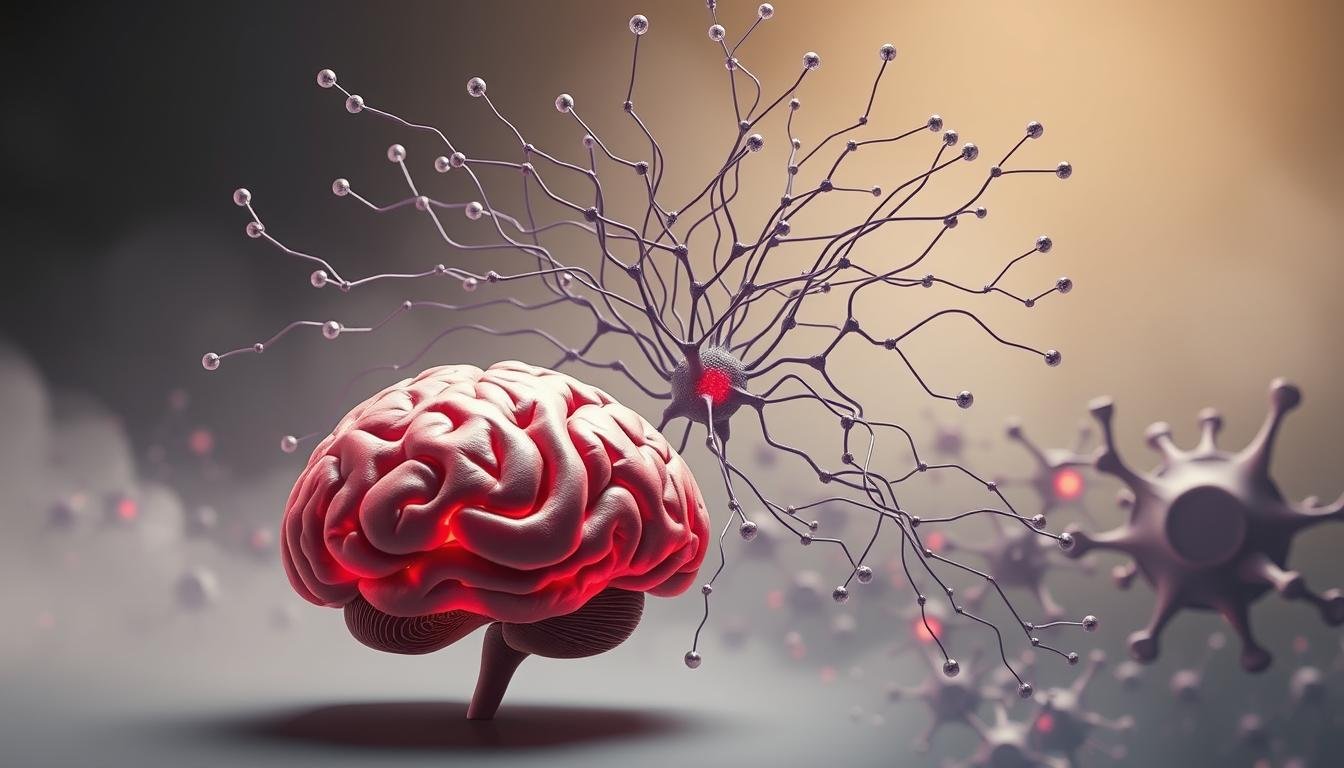Do you know that a good night’s sleep can make you healthier and more vibrant? In today’s fast world, we often forget how crucial quality sleep is. Yet, optimal sleep patterns are key to keeping us well.
Quality sleep does more than just let you rest. It renews your body and mind. It boosts your mental sharpness and immune system. By focusing on sleep wellness, you can greatly improve your life quality.
Key Takeaways
- Understanding the importance of quality sleep for overall health.
- Learning how optimal sleep patterns can improve mental and physical well-being.
- Discovering the numerous benefits of prioritizing sleep wellness.
- Exploring practical tips for achieving better sleep.
- Recognizing the impact of quality sleep on daily life and productivity.
The Importance of Deep Sleep for Health Restoration
Deep sleep is key for our body’s repair and restoration. It’s a vital part of the sleep cycle that keeps us healthy and well.
What is Deep Sleep?
Deep sleep, or slow-wave sleep, has slow brain waves called delta waves. It’s when our body fixes tissues, builds bones and muscles, and boosts the immune system. Deep sleep is crucial for physical recovery, helping our body heal and refresh.
The Stages of Sleep
Sleep has different stages, including NREM and REM sleep. Deep sleep happens in NREM stages 3 and 4. The sleep cycle moves from light to deep sleep and then to REM sleep, lasting 90-120 minutes.
- Stage 1 NREM: Transition from wakefulness to sleep
- Stage 2 NREM: Light sleep before entering deeper sleep
- Stage 3 NREM: Deep sleep, characterized by slow delta waves
- Stage 4 NREM: Also considered deep sleep, with continued delta wave activity
- REM Sleep: Associated with vivid dreams and memory consolidation
Why Deep Sleep Matters
Deep sleep is vital for health restoration and well-being. It helps our body recover from hard work, supports the immune system, and boosts brain function. It also leads to better sleep quality and mental health.
By focusing on deep sleep, we wake up feeling refreshed and ready for the day. It’s a key part of a healthy lifestyle and should be valued.
Impact of Sleep Wellness on Physical Health
Sleep is key to our physical health. It affects many body functions that keep us alive and healthy.
Strengthening the Immune System
Sleep is vital for our immune system. It helps our body fight off infections and inflammation. Getting enough sleep keeps our immune system strong, lowering the chance of getting sick.
Research shows that not enough sleep makes us more likely to catch a cold or flu. For example, sleeping less than 7 hours a night can make you almost three times more likely to get a cold than sleeping 8 hours or more.
Hormonal Balance and Sleep
Sleep affects our hormone levels. It controls when hormones like insulin, growth hormone, and cortisol are released. Lack of sleep can raise cortisol levels, leading to weight gain and other health issues.
Also, sleep helps balance our hunger hormones. Not enough sleep can make us hungrier and gain weight. This is because our “hunger hormone” goes up, and our “fullness hormone” goes down.
Heart Health and Restful Sleep
Good sleep is good for our heart. Lack of sleep can increase the risk of heart disease. Sleep helps our body manage stress and repair heart tissues.
A study in the American Heart Association journal found that sleeping less than 7 hours a night raises the risk of heart disease. This is compared to sleeping 7-8 hours a night.
Mental Health Benefits of Quality Sleep
Quality sleep is key for our mental health. It affects our anxiety levels and how well we think. It helps us manage stress and stay emotionally balanced.
Reducing Anxiety and Depression
Good sleep can really help with anxiety and depression. Our brains process emotions while we sleep. This makes us less stressed and helps us remember things better.
Natural remedies for sleep like melatonin can improve our sleep. This helps us feel better emotionally. Keeping a regular sleep schedule also helps our mood.
Practicing sleep hygiene practices is important. This means keeping our sleep area dark and quiet. It also means avoiding screens before bed.
Enhancing Cognitive Function
Sleep is vital for our brain’s function. It helps us focus, remember things, and solve problems. Deep sleep makes our brain connections stronger, which is good for learning.
Sleep quality affects how well we think. Bad sleep can make us less productive and less focused. Good sleep hygiene helps us think better.
Sleep and Emotional Regulation
Sleep also helps us manage our emotions. It makes us less irritable and more emotionally strong. Without good sleep, we can feel more stressed and emotional.
By focusing on sleep quality and good sleep hygiene practices, we can control our emotions better. This improves our mental health and overall well-being.
The Role of Sleep in Weight Management
Sleep is key to managing weight, affecting our metabolism and appetite. Not getting enough sleep can lead to weight gain. It’s important to understand how sleep impacts weight for a healthy lifestyle.
Metabolism and Sleep Connection
Sleep directly affects our metabolic rate. It regulates hormones like leptin and ghrelin that control hunger. Lack of sleep disrupts these hormones, increasing hunger and calorie intake. It also impacts insulin sensitivity, crucial for glucose metabolism.
A well-rested body burns calories more efficiently and manages weight better. Research shows sleep-deprived people have a less healthy metabolic profile than well-rested ones.
Sleep Deprivation and Weight Gain
Sleep deprivation can cause weight gain. It increases ghrelin and decreases leptin, leading to overeating. It also reduces motivation to exercise, contributing to weight gain.
Chronic sleep deprivation raises cortisol levels, a stress hormone that promotes fat storage. This increases the risk of metabolic syndrome and obesity-related health issues.
Building Healthy Sleep Habits
To manage weight through sleep, it’s crucial to build healthy sleep habits. This includes a consistent sleep schedule, a sleep-friendly environment, and avoiding caffeine and electronics before bed.
- Establish a relaxing bedtime routine to signal the body that it’s time to sleep.
- Avoid heavy meals close to bedtime to improve sleep quality.
- Create a dark, quiet sleep environment to promote better rest.
By prioritizing sleep and adopting healthy habits, individuals can manage their weight better. Optimal sleep patterns are essential for a healthier lifestyle.
Deep Sleep and Physical Recovery
Deep sleep is key for the body’s recovery. It’s a stage where the brain waves slow down, helping the body fix and grow tissues. This stage is vital for physical health.
Muscle Repair During Sleep
Muscle repair is a big part of deep sleep. When we exercise, our muscles get small tears. Deep sleep is when the body fixes these tears, releasing hormones that help muscles grow and get stronger.
Sleep’s Role in Injury Recovery
Deep sleep also helps injuries heal. It boosts blood flow and releases substances that fight inflammation. This healing process is key for both quick and long-term injury recovery. It’s why sleep is so important for those recovering from surgery or sports injuries.
Athletic Performance and Rest
Good deep sleep is also crucial for athletes. Not getting enough sleep can make athletes slower, weaker, and less accurate. Enough deep sleep, however, boosts performance by making sure the body is ready for action.
| Aspect of Physical Recovery | Role of Deep Sleep | Benefits |
|---|---|---|
| Muscle Repair | Release of growth hormones for muscle repair and growth | Enhanced muscle strength and endurance |
| Injury Recovery | Increased blood flow and release of anti-inflammatory cytokines | Faster healing and reduced risk of chronic injuries |
| Athletic Performance | Ensures full recovery of the body | Improved speed, strength, and accuracy |
The Connection Between Sleep Duration and Quality
Getting good sleep means having the right amount and quality. It’s not just about how long you sleep. The quality of your sleep also matters a lot for your health.
Sleep duration is how long you sleep. Sleep quality is how well you sleep. This includes how continuous and deep your sleep is.
Optimal Sleep Duration for Adults
Adults should sleep between 7 to 9 hours each night. This range is linked to better health and brain function.
Keeping a regular sleep schedule helps your body’s clock. This improves both how long and how well you sleep. Adults should make getting enough sleep a priority to feel refreshed and awake.
Quality vs. Quantity: What to Prioritize
Both sleep duration and quality are key, but sleep quality might be more important. Bad sleep quality can make you tired and less productive, even if you sleep enough.
Things like your sleep environment, health issues, and lifestyle affect sleep quality. Focusing on better sleep quality, like a comfy sleep space, can greatly improve your sleep.
Here are some key things to think about for better sleep quality:
- Make your sleep area comfortable
- Stay away from things that get you excited before bed
- Stick to a regular sleep schedule
- Try relaxing activities before bed
Strategies for Improving Sleep Quality
There are many ways to make your sleep better. Sleep hygiene practices are especially important for better sleep quality.
Some good strategies include:
- Keep your sleep area cool, dark, and quiet
- Don’t use screens or electronic devices before bed
- Do regular exercise, but not right before bed
- Try mindfulness or meditation to relax before sleep
By using these strategies, you can greatly improve your sleep quality. This leads to better health and happiness.

Environmental Factors Affecting Sleep Wellness
Sleep wellness is influenced by many environmental factors. Our surroundings greatly affect how well we sleep. Knowing these factors can help us sleep better.
Creating a Sleep-Friendly Space
Turning your bedroom into a sleep haven is key. Choose wisely what’s around you when you sleep. A clutter-free and cool space improves sleep quality. Keep your bedroom dark, quiet, and cool.
“A dark, quiet, and cool bedroom is ideal for sleep,” says experts. A comfy bed and a distraction-free room make a big difference.
The Impact of Light and Sound
Light and sound are big factors in sleep. Daytime natural light helps set your body clock. But, avoid artificial light at night to sleep well.
Sound is also important. Some like silence, while others find soothing sounds or white noise helpful. It’s about finding what works for you.
Effective Sleep Hygiene Practices
Good sleep hygiene is crucial. Stick to a sleep schedule, avoid caffeine and screens before bed, and have a calming bedtime routine.
- Have a bedtime routine to signal sleep time.
- Stay away from screens for at least an hour before bed.
- Keep your bedroom cool and dark.
By following these tips and paying attention to sleep environment, you can improve your sleep wellness and health.
Technology’s Role in Sleep Wellness
Technology has become key in tracking and boosting sleep quality. Wearable devices and sleep apps help us understand and fix sleep problems.
Technology offers many tools for better sleep. From simple sleep trackers to advanced apps, these tools give insights into our sleep. They help us find ways to sleep better.
Sleep Trackers: Pros and Cons
Sleep trackers are popular for tracking sleep. They monitor how long we sleep and the quality of that sleep. They can even spot sleep disorders.
The good things about sleep trackers are:
- They give detailed sleep data
- They help spot sleep patterns and problems
- They let us set sleep goals and get reminders
But, there are downsides too:
- Not all devices are accurate
- They might make us anxious about our sleep
- We might rely too much on them for sleep info
![]()
Apps for Better Sleep
Sleep apps have many features to help us sleep better. They offer relaxation techniques, track sleep stages, and set smart alarms.
Some cool features of sleep apps are:
- Guided meditation and relaxation
- Tracking sleep stages
- Smart alarms
It’s important to pick apps that are scientifically proven. This ensures they really work.
Balancing Screen Time and Sleep
Technology can help us sleep better, but too much screen time before bed is bad. The blue light from screens can mess with our melatonin levels. Melatonin is key for sleep.
To manage screen time and sleep, try these tips:
- Don’t use screens an hour before bed
- Use blue light filtering glasses or apps
- Have a regular bedtime routine
By being smart about screen time, we can use technology to improve our sleep quality and overall health.
Addressing Common Sleep Disorders
It’s important to know about common sleep disorders to manage and treat them. These disorders can harm our health and daily life. They affect not just our sleep but also our daily activities and long-term health.
Sleep disorders include many conditions that affect how we sleep. They can be caused by our lifestyle, environment, and health issues.
Insomnia: Causes and Solutions
Insomnia makes it hard to fall or stay asleep. It can be due to stress, anxiety, or certain medications. To solve it, try:
- Keeping a regular sleep schedule
- Having a calming bedtime routine
- Staying away from caffeine and screens before bed
If insomnia lasts, see a doctor. They can find the cause and help you with a treatment plan.
Sleep Apnea and Its Effects
Sleep apnea is a serious disorder where breathing stops and starts while sleeping. It can cause serious health problems, like heart disease and tiredness during the day.
To treat sleep apnea, try lifestyle changes like losing weight and quitting smoking. You might also need a continuous positive airway pressure (CPAP) device to use while sleeping.
Restless Leg Syndrome and Treatment Options
Restless leg syndrome (RLS) makes you feel like moving your legs, often with uncomfortable feelings. It can really mess up your sleep.
For RLS, try lifestyle changes like exercising regularly and avoiding caffeine. Doctors might also prescribe medicine to help with symptoms.
Learning about these sleep disorders and their treatments is a big step towards better sleep and health.
Nutrition’s Influence on Sleep Quality
Eating well is key to good sleep. What we eat affects our sleep patterns and quality. Knowing how food impacts sleep helps us choose better foods for better sleep.
Foods to Promote Better Sleep
Some foods help us sleep better. Sleep-promoting foods have melatonin, serotonin, and magnesium. These are important for sleep.
Here are some sleep-promoting foods:
- Tart cherries, a natural melatonin source.
- Fatty fish like salmon, rich in vitamin B6 and magnesium.
- Nuts and seeds such as almonds and sesame seeds, high in magnesium.
The Role of Caffeine and Alcohol
Caffeine and alcohol can hurt sleep. Caffeine blocks adenosine receptors, while alcohol disrupts sleep patterns.
Too much caffeine or drinking it before bed can cause insomnia. Alcohol may make you sleepy at first but can lead to sleep disturbances later.
Timing Meals for Improved Sleep
When we eat affects our sleep. Eating a big meal before bed can cause discomfort and indigestion.
It’s best to eat dinner 2-3 hours before bed. A light snack before bed is okay if needed. This ensures our body isn’t digesting food while we sleep.
Cultivating a Sleep-Conscious Lifestyle
Living a sleep-conscious lifestyle is key for good health. It helps improve both physical and mental well-being. This means making sleep a top priority and adopting habits that help you sleep better.
Creating a routine and using mindfulness and relaxation can also help. These practices make it easier to fall asleep and stay asleep.
Establishing Daily Habits
Good daily habits are essential for quality sleep. Keeping a regular sleep schedule is important. Also, avoid caffeine and electronics before bed.
Regular exercise is another key habit. It can greatly improve your sleep.
Role of Routine
A consistent routine helps your body’s internal clock. It makes falling asleep and staying asleep easier. Adding relaxing activities, like reading or meditation, to your evening routine signals to your body that it’s time to sleep.
Mindfulness for Better Sleep
Mindfulness and relaxation techniques, like deep breathing and progressive muscle relaxation, calm the mind and body. They help reduce stress and anxiety. This leads to better sleep quality.



